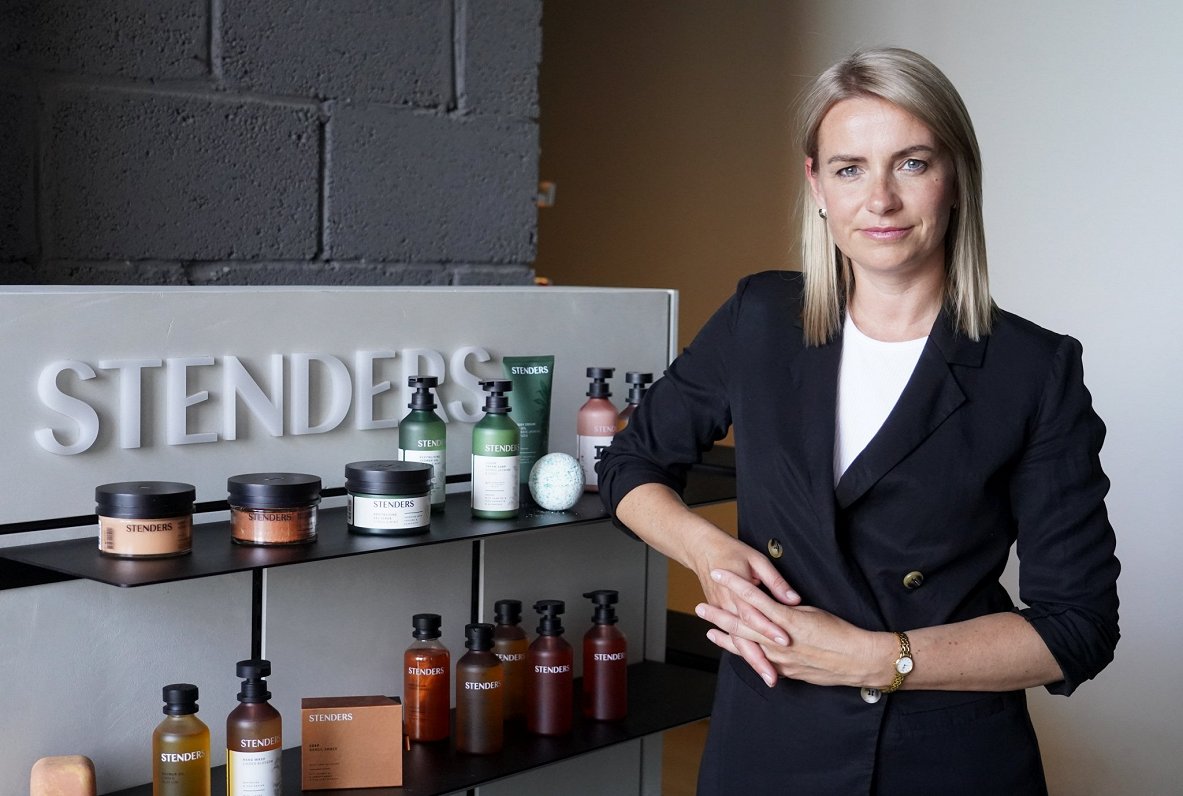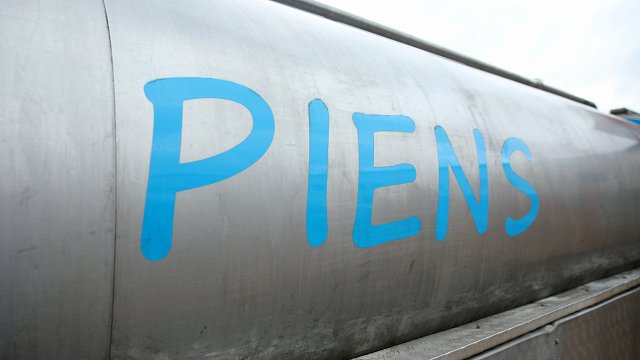The cosmetics manufacturer Stenders will soon open its first store in Germany.
"Stenders manufactures all of its products in Latvia, but exports most of them. Stenders' biggest export market is China, and last year it became active in the Middle East - Saudi Arabia and Jordan. Europe is becoming a strategic growth market and therefore needs to be strengthened. In Western Europe, Stenders does not yet have its own stores.
"In Germany we will have our first store near Frankfurt, which we will open soon. Germany is a difficult enough market. It is a conservative market, but at the same time we understand that if we win the favor of the German customers, it is a very good market to develop and a very good market to set an example for other countries. If you have managed to develop your business in Germany, it is a good reference to develop further," said Kristīne Grapmane, CEO of Stenders.
When asked about the development of stores and e-commerce, Grapmane acknowledged the situation is changing: "E-stores are still developing, but in relation to the previous Covid period, when e-commerce developed quite rapidly also in the cosmetics industry, we now see that consumers' habits are changing and a large part of them are switching back to physical stores."
The year has also started well for the industry flagship Madara Cosmetics, which continues to grow above the industry average. Three-quarters or 75% of the company's production is sold outside Latvia, and this dynamic continues to grow. Finland is the largest market, but France and Germany have just joined the list. The Czech market grew by 50% last year.
"Global online customers such as Zalando are growing very fast. Our strategy for physical retail is definitely to go with partners, whether they are chains, independent small shops, or pharmacy chains, like in France, where we see good traction in pharmacies, but we will not focus on physical stores. We are developing our e-commerce store in all export countries," says Gunta Šulte, CEO of Madara Cosmetics.
When asked how the industry has been affected by the Russian invasion of Ukraine, Šulte said that this year the company has felt it more indirectly: "We have not experienced any disruptions in supply chains, packaging or raw materials, but price levels have not fallen to pre-war levels. Inflation affects both packaging and raw materials, and macroeconomic trends have an impact, because we are no exception, we are affected by labor, wages grew last year and will continue to grow this year, and that affects us as a manufacturing company."
Cosmetic manufacturers export 90% of their products and the EU market is very important for them, said Ieva Plaude, Chairwoman of the Board of the Latvian Association of Cosmetic Manufacturers.
"Last year's achievement of a 9% increase in exports is outstanding. It is all about innovation, more targeted use of technology. We are optimistic, we are happy that manual procedures are returning to cosmetics, this [is] the human factor alongside the use of modern technologies," she says.
Last year, the sector's exports amounted to €72 million.






























